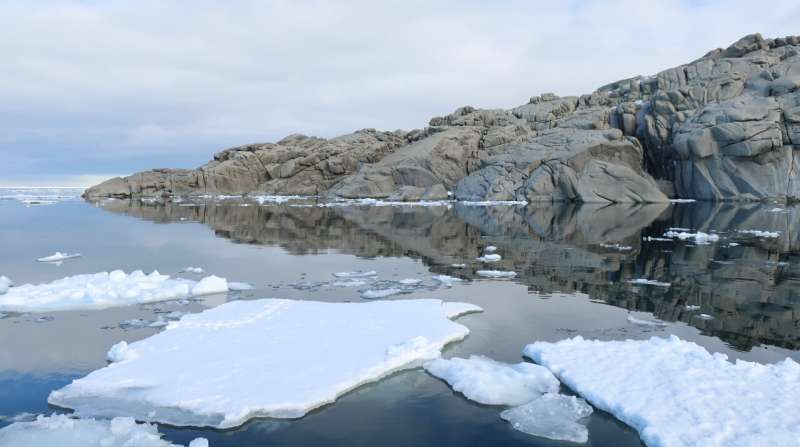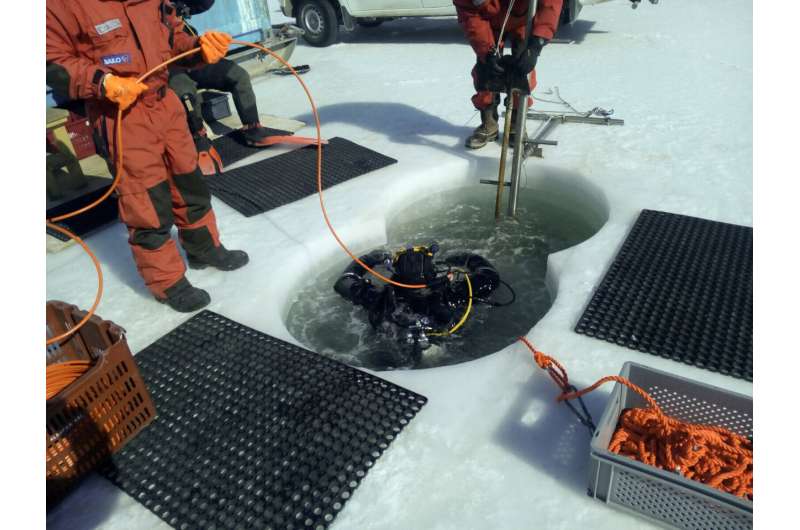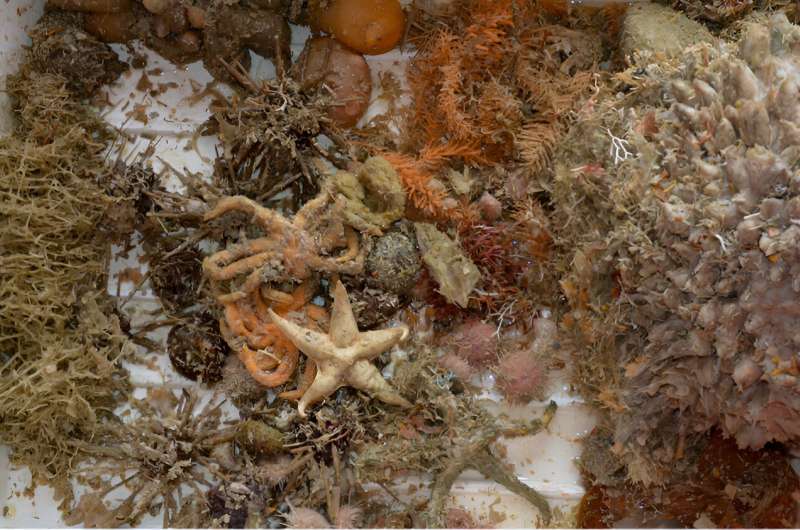June 25, 2024 report
This article has been reviewed according to Science X's and . have highlighted the following attributes while ensuring the content's credibility:
fact-checked
peer-reviewed publication
trusted source
proofread
Bacteria found to produce proteins that act like antifreeze, helping marine worms survive in polar waters

A team of marine biologists affiliated with multiple institutions in Italy has found that some marine worms are able to survive in cold polar waters thanks to symbiotic bacteria that produce antifreeze-like proteins.
For their , published in the journal Science Advances, the group ventured to three coastal areas in Antarctica and collected sediment samples containing marine worms and brought them back to their lab for study.
Prior research has shown that some sea creatures such as icefish produce proteins that have antifreeze-like properties to keep themselves from freezing in cold waters. Prior research has also shown that other creatures without this adaptation somehow manage to survive anyway.
In this new study, the research team suspected that some of those species may be getting help from microbes that produce proteins for them. To find out if that might be the case, they ventured to three coastal regions in Antarctica, all along the Ross Sea, and scooped up ocean sediment, which they knew would contain multiple species of marine worms.

They captured three species of marine worms, two of which are known to survive by feeding on the carcasses of dead animals; the third was a predator. They also noted that the water temperature where the samples had been collected averaged 1° below freezing—any creature living there would need some sort of antifreeze-type protection.
Through dissection, the research team identified two types of enzymatic proteins, associated with Meiothermus silvanus and Anoxybacillus flavithermus, known to generate proline and glycol, materials that reduce the freezing point of liquids. They also found that none of the proteins were produced directly by the worms.

The team then conducted a DNA analysis of the worms to discover what sort of bacteria may be residing inside of their bodies. They discovered two genera of bacteria that are known to produce cryoprotective proteins of the type that were found in the worms.
The finding showed that the worms and bacteria had formed a symbiotic phylogenetic relationship—the bacteria got a home in the worm and a food source, and the worms avoided freezing to death.
More information: Emanuela Buschi et al, Resistance to freezing conditions of endemic Antarctic polychaetes is enhanced by cryoprotective proteins produced by their microbiome, Science Advances (2024).
Journal information: Science Advances
© 2024 Science X Network



















